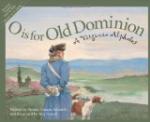We could not help feeling that the matter of wigs must have been an especially troublesome one. As styles changed in England, these important articles of dress (often costing in tobacco the equivalent of one hundred dollars) had to be sent to London to be made over. Between the slowness of ships and the slowness of wig-makers, it must often have happened that even such careful dressers as the fastidious Secretary himself would be wearing wigs that would scarcely pass muster at the Court of St. James or at Bath. Indeed, Secretary Carter did not deny there being some truth in this; but he appeared so at ease that day at Shirley that we knew, on that occasion at least, he was sure of his wig.
One more progression along the receiving line, one more generation passed by the way, and we came upon Charles Carter, with his strong, kindly face, a gentleman of the days of George III and of the last days of colonial times.
And what days those were! The days of stamp acts and “tea parties” and minute men; of state conventions and continental congresses; of Lexington and Valley Forge and the surrender of Cornwallis; of the Articles of Confederation and the formation of the Union. This Charles Carter saw our nation made and, in the councils of his colony, helped to make it. Here, in old Shirley, he put down the cup from which he had right loyally drunk the colonial toast, “The King! God bless him!” and he took it up again to loyally and proudly drink to “George Washington and the United States of America.”
We met still other old-time people at the manor-house that day; but it would not do to try to tell about them all. The omitted ones do not count much, being chiefly wives. Everybody knows that in meeting colonial people it is scarcely worth while considering a man’s wife, for so soon she is gone and he has another.
Truly, Shirley’s colonial reception was very enjoyable, we thought, as we took a last glance at the serene, old-time faces and caught a last whiff of ambergris from the queer, old-time wigs.
CHAPTER XXV
AN INCONGRUOUS BIT OF HOUSEBOATING
By this time, we were becoming anxious about the lateness of the season. Of course it was only through some mistake that we were getting all those fine warm days in December. Perhaps Nature had not had her weather eye open when Father Time wet his thumb and turned over to the last page of the calendar. But now, there was something in the look of the sky and in the feel of the air to make us fearful that the mix-up of the seasons had been discovered, and that winter was being prodded to the front.
Still we lingered in Eppes Creek, and soon we could not do otherwise than linger; for we wakened one morning to find the stream frozen over, and Gadabout presenting the incongruous spectacle of a houseboat fast in the ice.
All that day and the next the coldness held; and the ice and the tide battled along the creek with crackings and roarings and, now and then, reports like pistol shots. This surely was strange houseboating. It was a serious matter too. We knew that we might be held in the grip of the ice indefinitely. We did not care to spend the winter in Eppes Creek; nor could we abandon our boat there.




